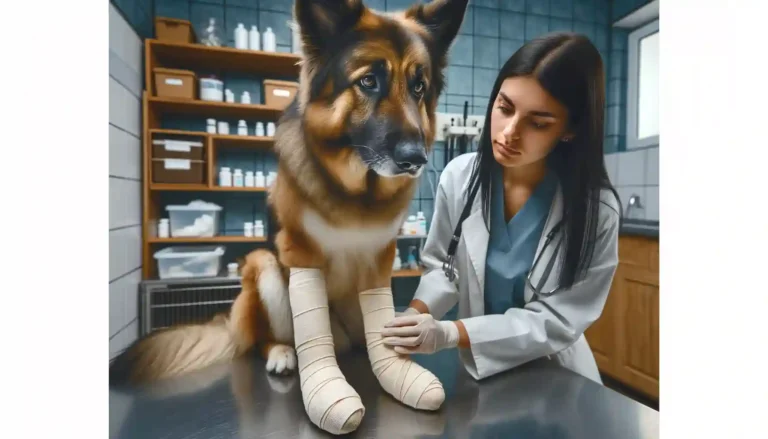Introduction
Have you ever found yourself wondering, “Why won’t my dog lie down?” This is a question that may seem simple, but behind it lies a world of dog behavior and welfare. This seemingly small issue may be a window into your furry friend’s health and happiness.
Understanding why your dog behaves a certain way is important not only for their physical well-being but also for their emotional comfort. It’s all about tuning into the silent language of tail wagging, ear position and yes, even their preferred resting position.
If you own a pet and are struggling with this, you are not alone. Many of us have been there and seen our beloved pets moving quickly instead of settling down. Let’s take a deeper look together and uncover what your dog may be trying to tell you through his choices about whether or not to lie down.
Physical discomfort or pain
1. Joint Pain or Arthritis
This is especially common in larger dogs. Like humans, dogs can suffer from wear and tear on their joints, causing discomfort when lying down or getting up.
2. Recent Injuries or Surgeries
If your dog has recently been injured or had surgery, the associated pain may make lying down uncomfortable or even painful.

3. Signs to Look For
Pay attention to signs such as limping when walking, reluctance to engage in normal activities, or crying when attempting to lie down. All these can indicate physical problems.
Behavioral Issues
1. Anxiety or Stress-Related Behavior
Like people, dogs can experience stress and anxiety, which can manifest in their reluctance to lie down. This may be due to changes in their environment, separation anxiety, or other stressors.

2. History of Trauma or Abuse in Rescue Dogs
Dogs with a history of trauma or abuse, especially rescue dogs, may develop certain fears or anxieties that affect their behavior, including where and how they rest.
3. Behavioral Symptoms Are Distinct from Physical Discomfort
Signs such as excessive movement, panting, or alertness, even in generally comfortable environments, may indicate a behavioral problem rather than a physical one.
Environmental Factors
1. Uncomfortable Resting Place
Sometimes, the problem can be as simple as the bed or the area where they are expected to rest. It may be too hard, too soft, too hot or too cold as per their liking.
2. Change in Home or Routineine
Dogs are creatures of habit. Any disruption in their daily routine or change in the home, such as moving to a new home or the arrival of a new pet, can cause discomfort.
3. External Stimuli
Noise, the presence of strangers or other animals, or even changes such as new furniture in the home can irritate dogs and affect their resting habits.
Medical Conditions
1. Gastrointestinal Problems
Conditions such as bloating, constipation, or dietary issues can make lying down uncomfortable for dogs.
2. Neurological Disorders
Some neurological conditions can affect a dog’s ability to lie down or sit up comfortably.

3. When to Consult a Veterinarian
If you suspect that your dog’s reluctance to lie down is due to a medical condition, it is important to consult a veterinarian. It is within their capabilities to offer an accurate diagnosis and tailored treatment strategy.
Solutions
1. Selecting the Right Bed and Space
Select a dog bed that suits your pet’s size and comfort needs. Orthopedic beds are great for older dogs suffering from joint pain. The location of the bed should be in a quiet, draft-free area where your dog feels safe.

2. Importance of routine
Dogs thrive on routine. Establishing a consistent schedule for activities like meals, walks, and bedtime can help reduce anxiety and make your dog more likely to lie down when it’s time to relax and unwind.
conclusion
We’ve figured out why dogs might not want to lie down – whether they’re uncomfortable, have health issues, or are experiencing behavioral or environmental issues. Knowing this helps keep our furry friends happy. Just be patient and take good care of them. If you are ever unsure or notice something wrong, ask a veterinarian or dog expert for advice. They can help ensure that your dog remains healthy and happy.

